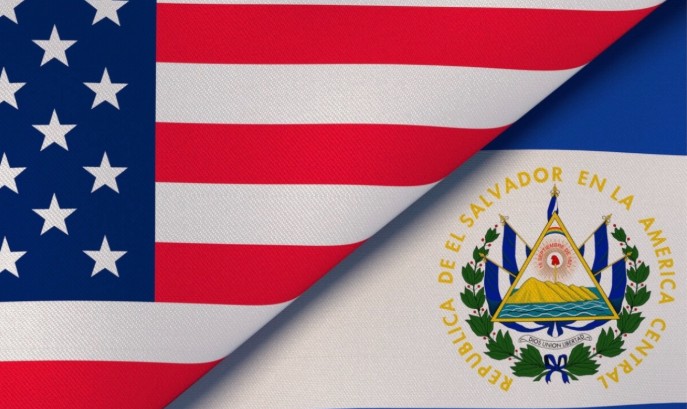The newly announced Framework for an Agreement on Reciprocal Trade between the United States and the Republic of El Salvador marks a targeted modernization of the CAFTA-DR foundation. This Agreement introduces a compliance-forward, opportunity-rich environment for U.S. exporters and importers especially those operating in pharmaceuticals, agri-food, remanufactured goods, digital services, and textiles.
For U.S. stakeholders, this framework offers more than tariff relief. It delivers regulatory streamlining, digital trade facilitation, and alignment on labor, environmental, and national security priorities. Peacock Tariff Consulting offers the following strategic breakdown to support audit-ready planning, tariff classification, and stakeholder advisories.
Tariff Concessions and Market Access Expansion
The Agreement provides for the removal of reciprocal tariffs on qualifying Salvadoran exports to the United States particularly those not grown, mined, or produced in sufficient quantities domestically. This includes select textiles and apparel products originating under CAFTA-DR.
For U.S. importers, this translates into lower landed costs and improved sourcing flexibility. For exporters, it signals a reciprocal opening of El Salvador’s market across key sectors, including pharmaceuticals, medical devices, chemicals, machinery, and agricultural goods.
Actionable Guidance:
- U.S. exporters should model tariff exposure scenarios using TariffEdge
- Importers must reassess sourcing strategies for textiles and apparel
- HS code audits are essential to ensure defensibility under revised tariff schedules
Elimination of Non-Tariff Barriers
El Salvador has committed to dismantling a wide range of non-tariff barriers that have historically restricted U.S. market access. These include:
- Streamlining regulatory approvals for pharmaceuticals and medical devices
- Removing import restrictions on remanufactured goods
- Accepting U.S. auto standards
- Simplifying certificate of free sale requirements
- Accepting electronic certificates and removing apostille mandates
- Expediting product registration timelines
These reforms will reduce administrative overhead and accelerate time-to-market for U.S. exporters. Compliance teams must update documentation workflows and ensure conformity with U.S. standards to fully leverage these gains.
Agricultural Access and SPS Alignment
El Salvador will address and prevent barriers to U.S. agricultural products, including recognition of U.S. regulatory oversight and certificates. The country will also ensure that market access is not restricted due to the use of common cheese and meat terms.
This alignment offers U.S. producers a more predictable pathway into El Salvador’s market, but it also demands rigorous origin verification and labeling compliance. Stakeholders should prepare audit-ready documentation and monitor SPS enforcement trends, especially in high-sensitivity categories like dairy, meat, and produce.
Intellectual Property and Geographical Indications
El Salvador has committed to advancing international IP treaty implementation and resolving longstanding issues identified in the USTR’s Special 301 Report. The country will also ensure transparency and fairness in the treatment of geographical indications.
For U.S. exporters, this reduces the risk of exclusionary labeling practices and strengthens the defensibility of branded goods. Compliance teams should monitor IP enforcement trends and prepare documentation that substantiates trademark and labeling claims.
Digital Trade and Services Facilitation
El Salvador will refrain from imposing discriminatory digital services taxes and will support a permanent WTO moratorium on customs duties for electronic transmissions. The country has recommitted to preventing barriers to services and digital trade with the United States.
These provisions create a more predictable environment for U.S. digital service providers and exporters of digitally distributed products. Stakeholders should ensure their digital compliance protocols reflect these new standards and prepare audit trails for cross-border data transfers.
Labor and Environmental Enforcement
El Salvador has reinforced its commitment to internationally recognized labor rights, including a prohibition on imports produced by forced or compulsory labor. On the environmental front, the country will:
- Improve forest sector governance
- Combat illegal logging and wildlife trade
- Strengthen fisheries enforcement
- Address illegal mining
- Work toward full implementation of the WTO Agreement on Fisheries Subsidies
These commitments align El Salvador’s enforcement posture with U.S. priorities. U.S. importers must update supplier due diligence protocols and prepare for enhanced scrutiny across labor and environmental dimensions.
Economic and National Security Cooperation
Both countries will deepen cooperation on:
- Supply chain resilience
- Investment security
- Export controls
- Duty evasion
- Government procurement
- Countering non-market policies
The framework may also be considered in future Section 232 national security determinations under the Trade Expansion Act. This elevates the Agreement’s strategic relevance and underscores the need for defensible trade strategy.
Compliance Strategy:
- Monitor Section 232 developments for sectoral impact
- Prepare stakeholder memos on procurement and investment screening
- Align internal controls with export control and duty evasion protocols
Implementation Timeline and Forward Coordination
The United States and El Salvador will finalize the Agreement and undertake domestic formalities in the coming weeks. Ongoing coordination will occur through bilateral mechanisms, ensuring continuous review and adaptation.
Peacock Tariff Consulting will issue serialized advisories and stakeholder memos as the Agreement enters into force.
Conclusion
The U.S.–El Salvador Framework for Reciprocal Trade is a strategic upgrade to CAFTA-DR one that blends tariff liberalization with regulatory modernization and national security alignment. For U.S. exporters and importers, it offers a rare opportunity to expand market access while reducing compliance friction.
Peacock Tariff Consulting urges clients to treat this framework as an active compliance frontier. The removal of non-tariff barriers, the acceptance of U.S. standards, and the digital trade facilitation measures all demand proactive adaptation. SMEs must audit their HS codes, simulate tariff exposure, and prepare stakeholder-facing documentation that anticipates both opportunity and scrutiny.
Moreover, the labor and environmental chapters signal convergence with U.S. enforcement priorities. El Salvador’s commitments on forced labor, illegal logging, and fisheries enforcement will likely trigger enhanced due diligence expectations across supply chains. U.S. importers must be prepared to demonstrate compliance not only with tariff schedules, but with ethical sourcing and sustainability benchmarks.
As the Agreement moves toward finalization, Peacock Tariff Consulting will continue to monitor its evolution and provide exportable content, audit-ready deliverables, and strategic outreach materials tailored to sector-specific needs.
#USElSalvadorTrade #TradeCompliance #TariffStrategy #DigitalTrade #AgriFoodExports #IPEnforcement #SupplyChainResilience #LaborStandards #EnvironmentalGovernance #PeacockTariffConsulting

